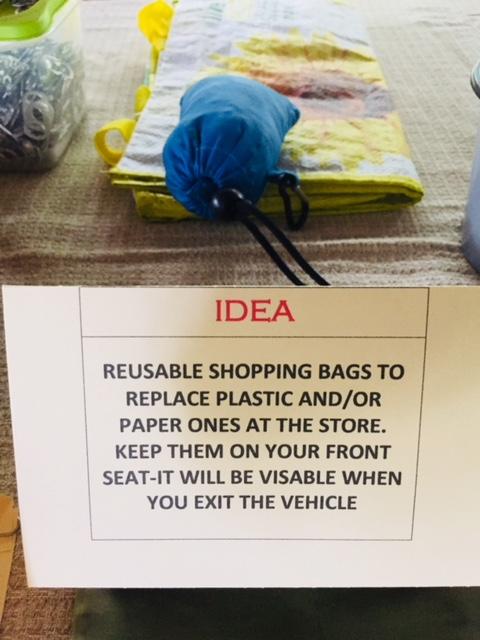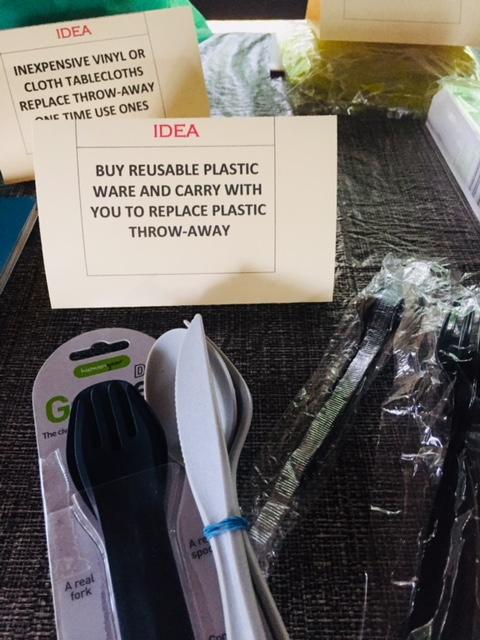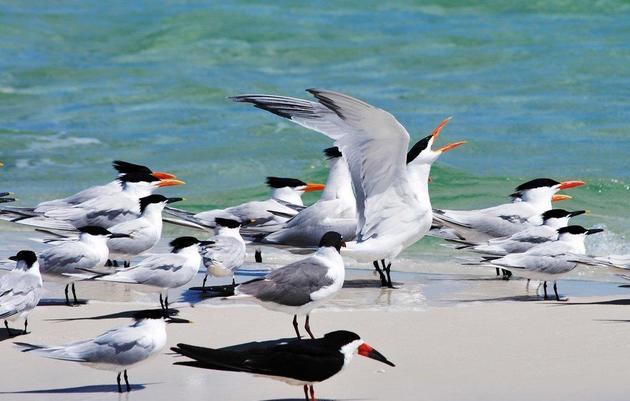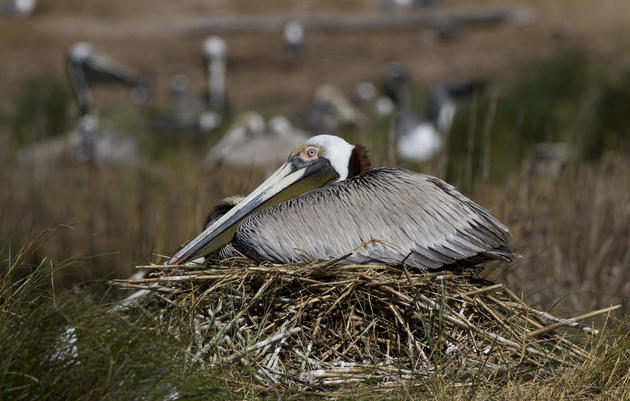Shortly after the 2018 Year of the Bird monthly calls to action were published in January, Mecklenburg Audubon Society (MAS) members Jill Palmer and Jim Guyton met to discuss the various ways their chapter could get involved.
As it turned out, there was a perfect fit! MAS's annual picnic was planned for June, with a matching action item to "Reduce single-use plastic by saying no to plastic bags, straws, and bottles, and commit to recycling to save seabirds and other wildlife from ingesting the trash that pollutes our oceans."
In mid-May Jill sent out a listserv notice asking all members and volunteers to watch the documentary “A Plastic Ocean”. The film documents the newest science around plastics, proving how once they enter the oceans, they break up into small particulates that enter the food chain- where they attract toxins like a magnet. These toxins are stored in seafood’s fatty tissues, and eventually consumed by us!
Jill and Debbie Foster, a longtime MAS member, contacted the local Mecklenburg County Solid Waste Division and secured copies of the 2018-2019 Wipe Out Waste guide. This booklet gives all the information one would need to recycle at curb-side and at full service recycling centers. They also provided reusable shopping bags donated by a grocery store to give to each attendee.
Leveraging their listserv, newsletter, and word-of-mouth, Jill and Debbie then spread the word and challenged MAS members to attend the picnic disposable-plastic free! This meant no water bottles, plastic utensils, plastic disposable bags or straws (to name a few). This did not mean no plastic food containers, only the ones that were disposable one-time use.
"I'm an avid recycler myself," said Jill. "If I buy a blouse and it has a tag on it, I'll recycle the tag. If there's a different way to purchase an item so it's not in plastic, I try very hard to do so. I'm highly conscious about what I'm putting back into the environment."

The night of the picnic, a display was set up showing various disposable items and the responsible, plastic-free replacement item that could be used instead. A reusable straw replaced a disposable straw, a reusable sandwich bag or container replaced a disposable baggie, cloth bags replaced plastic one-time use bags and cloth net bags replaced plastic bags for produce.
"People were showing off how they'd brought plates from their kitchen, real silverware and cups! At the display table, I overheard folks exclaiming 'Oh, that's a great idea! I never thought of that!" said Jill. "A lot people thanked me. I also got a lot of questions. I think people really enjoyed it. A few have commented it really got them thinking and they pledged to be better environmentalists and do more to reduce, reuse and recycle."
Each attendee took a ten question quiz of recycling facts. Everyone missed at least four, and the rest of the group missed between five and seven questions! "What a lot of people don't realize is that there are many places they can drop off recyclables around town," said Jill. "Nurseries, for instance, will often take back the plastic plant containers. Foam board (from meat products) can go back to Publix. Plastic bags can go back to grocery stores like Harris Teeter."

Prizes of a native plant, bird seed, solar hummingbird light and reusable options of bags and sandwich containers were given out to quiz winners. Items were generously donated by Backyard Birds, Carolina Heritage Nursery and a member.
To top off the night, Jill pulled out one last bag of tricks (aka recyclable items) and asked picnic attendees, "what should be done with this item?" "Where does this item end up?" and "What other use does this item have?" The activity generated enthusiastic discussion, and new ideas were presented by attendees for the good of all.
Want to take Mecklenburg Audubon Society's recycling quiz?
Answers at bottom!
1. What is the earth's largest habitat?
2. Over the lifecycle of a reusable bag how many plastic bags would be saved?
3. Where can you recycle household chemicals?
4. Which grocery store offers Styrofoam recycling?
5. How many drinking straws are used in the US every day?
110 million
100 million
500 million
1 Billion
6. What percentage of the landfill waste is plastic bags?
7. What percentage of plastic are returned for recycling?
8. How many birds die each year from ingesting plastic?
ANSWERS
1. the Ocean
2. 1,000 per reusable bag
3. Full service recycling center
4. Publix
5. 500 million
6. 16%
7. Estimated 1%
8. 1 million, mostly sea and shore birds






